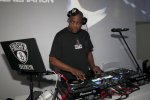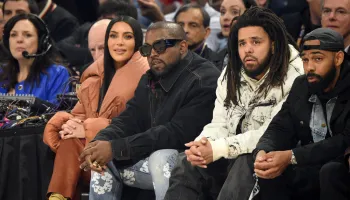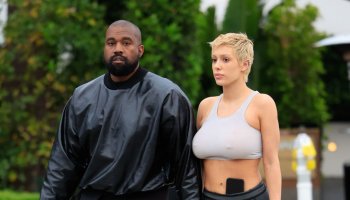The Gulf region has proven itself resilient, and while there is still more work to be done, the people in the area continue to push forward with or without help from outside entities. “I think the most important thing really is the scope of the problem,” notes Zack Rosenberg, who runs the non-profit organization, the St. Bernard Project. Rosenberg and members of his team have been on the frontlines of the disaster area, re-building houses for families who own property but are not financially capable of fixing their homes in New Orleans and the area known as St. Bernard Parish. The St. Bernard Project gives priority to the elderly, disabled, and parents who have children younger than 18. “There were 180,000 houses flooded,” Rosenberg tells Hip-Hop Wired. “That’s a massive number. The disaster recovery model in America has room for improvement. There were folks who received insurance and then the mortgage company took their payments.”
“George Bush doesn’t care about Black people.” -Kanye West
Opening the door for fraudulent activity, at the hands of contractors, many who lost their homes because of Katrina have been scammed. As a result, 60 percent of residents helped by the St. Bernard Project have been victims of fraud.
Back in 2005, New Orleans was a hot spot for media attention and is credited with shifting the way in which reporters covered stories on a national scale turning them from the “lap dog” media to the “watch dog media.” Many celebrities headed to the area, and held fundraisers to elicit donations to aid the Gulf Coast. Kanye West poignantly appeared on a telethon and spoke what had been hanging heavy on the hearts of many watching the disparaging treatment of America’s own citizens. “George Bush doesn’t care about Black people,” West said. His words were heartfelt, honest, and true.
Bush was criticized for proclaiming that FEMA head Michael Brown was doing a “helluva job” with helping people in New Orleans, yet the countless pictures of residents stuck on rooftops, trying to swim in the water that flooded the city once the levees broke, and the dead bodies strewn throughout the city streets begged to differ.
Now that the television cameras have left, and the many of the celebrities have stopped offering their support, Rosenberg is encouraging the nation not to forget about New Orleans. “What I used to tell people [is], ‘It’s a year after the storm, we need your help more than ever.’ But the truth is now is that time. Now is the time. People need to keep this on the radar or else it will be forgotten. New Orleans is family that’s what it really is and we all have family who we love and many of us are lucky enough to have a safety net, but [there are] those who don’t. The family who [are] not our blood, who [are] not our direct kin, we have to step forward. The time is now.”
Supplies for each home that the St. Bernard Project builds costs between $20-$25,000, and with a projected 15 years until New Orelans is restored to its post-Katrina status, Rosenberg feels that things are right on track. “Arguably we’re a third of the way there,” he says. “I think 15 years is probably right for it to be completely recovered. I think the window is about three years more for owner-occupied free buildings. I have clients who are living in gutted houses still today.”
Yet even with a reported $10 billion allocated to restoring the New Orleans, the economic downturn has made an already trying situation worse. “It’s multi-leveled. New Orleans is an awesome place. The schools are getting better, the community is full of love. If people are back in there house that means many, if not all, have their families around,” says Rosenberg. “[But, an] Unimaginable number of hard working folks who— of no fault of their own— haven’t been able to recover. The recovery is by no means complete for them.”
CONTINUED ON NEXT PAGE















